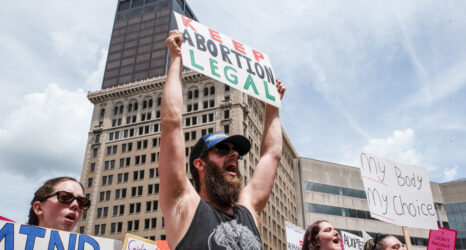In the wake of anti-abortion laws sweeping the country, support for abortion in the U.S. is the highest it’s been in 24 years—and voters across lines of gender and party are paying attention to the policies heading into the 2020 election.

Sixty percent of respondents who participated in a new poll by the Washington Post and ABC think abortion should be legal in all or most cases—an increase of seven percent since the last poll of this kind, commissioned in 2013, and a tie with the highest-ever reported support for abortion, in 1995. Even in 2010, when anti-abortion sentiment in these polls peaked, a full 55 percent of participants said it should be legal in most cases.
Support even remains consistent in states where abortion is under attack by lawmakers: 57 percent of participants who live in the 30 states with heavy restrictions on the procedure said abortion should be legal in all or most cases, and 64 percent of those hailing from states with less restricted access to abortion agreed.
Partisan differences impacted the results—77 percent of Democrats polled said abortion should be legal, compared to only 41 percent of Republicans—which could signal that abortion policies will play a pivotal role in the 2020 election.
More than 60 percent of those surveyed listed abortion as “one of the single most important issues” or a “very important issue” influencing their vote, and 54 percent disapproved of the Trump administration’s attempts to limit abortion access and erode reproductive rights. Women are more likely to prioritize a candidate’s abortion policies than men—whereas 62 percent of women and 59 percent of men say abortion should be legal in all or most cases, only 46 percent of men said it was important to their vote, compared to 73 percent of women.
Support for abortion has not been this high since 1995—when, according to similar polling data, its popularity peaked. As politicians gear up for 2020, state lawmakers and national candidates alike would do well to keep that in mind.





